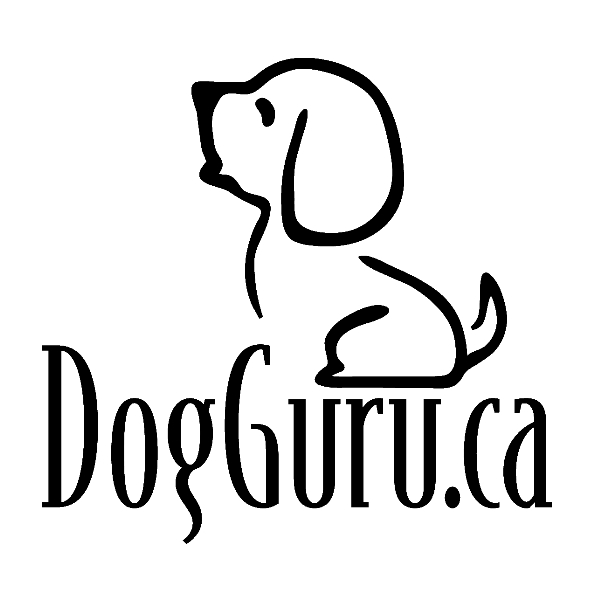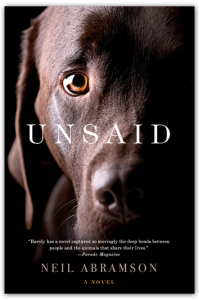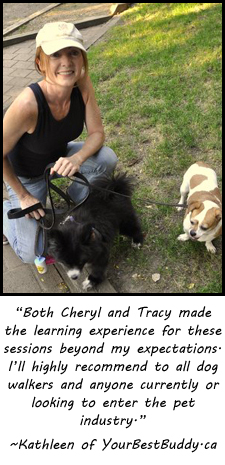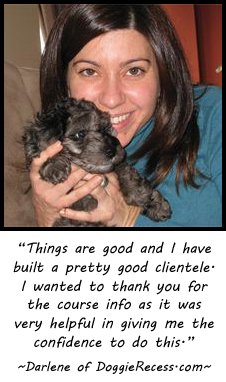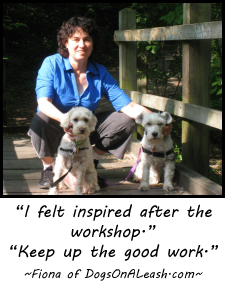What is the difference between
Unspoken and Unsaid?
This is a question posed in the novel I just finished by Neil Abramson, called “Unsaid”.
I don’t often read fiction. Perhaps it’s because I’m more of an information-gatherer type of person, however this novel really captured me. Perhaps it’s because of the focus on animals, or perhaps it’s because of it’s scientific side. (I’m a sucker for science-speak — I guess that’s my ‘nerdy’ side.)
Regardless, I would say it was well worth the read. I got a little of everything I find interesting in a good book, and at many parts, was pulled in so deep that I read well into the night hours.
Overall, upon finishing it, I would say I am left feeling a sort of humbled melancholy coupled with an amazement for how many ways animals and especially companion animals deeply affect our lives. I’m also left with an yearning to write, thus this article, to start people thinking and changing how they see themselves and their animals.
The book brings up a serious topic of animal rights. Specifically, whether or not the difference between messages unspoken in a human language are the same things as having said nothing at all. Do animals have a voice? Do they have messages to share with us? Do these creatures have perhaps even a higher awareness and knowledge than we give them credit for?
As humans, most of us take for granted that we can choose to speak or we can choose not to speak. Regardless of our ability for human speech, much of what actually needs to be said, often goes unspoken. All you have to do is speak to any human being and ask them… “What do you wish someone had said to you?”, and you’ll hear an overwhelming number of stories of children who just wanted to be told they were good, smart, capable, or spouses who longed to hear the words “I love you” or students who wanted to be told they did a good job.
We, as sentient beings (which is a topic throughout the novel), are defined as such, because we can decide what we think needs to be spoken, and when to say it, and conversely, what doesn’t need to be spoken, and therefore choose to withhold communications if we wish. We make these choices everyday, perhaps hundreds of times per day.
We are so caught up with our human languages, we even judge those of our own species. Those who don’t speak ‘enough’, those who are less eloquent in their speech, who are ‘shy’, or perhaps even lack the ability to speak, are seen as somehow “less than” the general population.
I venture to say that we use and depend on human languages and speech far too much! We rely upon it, we seek it for security, and we have given up so much in our abilities as the ‘animals’ that we are, to communicate in so many other ways.
Never is this point more clear to me when I am working with dog handlers. One of the first things I always have to remind my clients is that “Dog Don’t Speak English” (or any other human language). Far too often people see dogs as something to control, to force into behaving as we humans want them to. It is my job to help people understand how their dog sees the world, and how they communicate, so that we can simply ‘ask’ the dog for what we want, and sometimes even find a comparable middle ground that is acceptable to both parties (as would be the same in ANY successful relationship between two individuals).
I teach a lot about proper leadership, as that is what dogs truly need to be well-adjusted and happy (and humans too for that matter… just sayin’).
…and yes, I often use the term “dominant” to discuss a behaviour or type of body language, but don’t get me wrong. I am in no way suggesting the model of “dominance” that includes aggression and harsh treatment, resulting in crushing another’s spirit. We are not here to dominate another species for our ego’s own distorted needs. Our job as a dog handler is to provide them with the security they need, in the terms that they understand, and that happens to include having a strong leader, who demonstrates such, in a way that they, as a canine, can understand.
We have so much to learn from animals, and especially the companion animals in our lives everyday. They are always communicating with us. They have a multitude of ways to tell us what is going on for them, and how they see the world… if we would only “listen”.
Perhaps there will come a day when we as humans, are not so blinded by our perception of us as a superior species.
Just because we can speak human languages, just because we have developed the ability to kill every other creature on this planet, just because we have chosen to manipulate our environment to suit our immediate needs with no regard to the future, doesn’t mean we are superior beings.
I think this day is arriving… slowly, one person at a time, and I’m here to do my part. We are creating a community of people who chose to live in harmony with other beings and with our planet. We are creating a community of humans who understand that to bring out the very best in humanity, we must first see ourselves as just another ‘being’, and act accordingly. We are creating a community based on love, rather than fear and (the illusion of) control.
Thank you for being part of my community. I love you!
